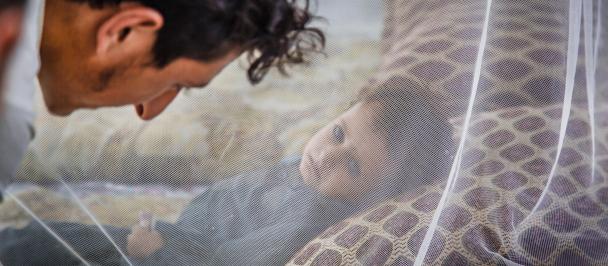Photo Ⓒ UNDP / S. Omer Sadaat / 2018
Twenty-eight-year-old Muhibullah is a tuberculosis (TB) survivor who has become a health worker after being cured of the illness. He has made it his mission to help other patients, and raise awareness among his community about the disease.
Muhibullah is second oldest among eight siblings and the sole breadwinner for his entire family. He had to give up on his dream of higher education after graduating from high school in order to support his parents, three brothers and four sisters who live with him in their native village of Chamtala in Nangarhar province.
Despite difficulties such as unemployment and insecurity, Muhibullah kept working hard to support his family. But one morning he awoke with a high fever and a constant cough. He visited the nearest health facility in his hometown for a checkup. The sputum test results shocked him. He was positive for pulmonary tuberculosis.
“It was distressing to see the results, but I tried to stay calm.” says Muhibullah.
“The medical staff convinced me that the TB was treatable, as long as I completed the treatment course.”
Photo Ⓒ UNDP / S. Omer Sadaat / 2018
Photo Ⓒ UNDP / S. Omer Sadaat / 2018
Photo Ⓒ UNDP / S. Omer Sadaat / 2018
Muhibulah had continued his treatment in the hospital for six months until he was cured.
After that, he stayed at the hospital, not as an under-treatment patient, but as a health worker, helping others.
“He gained a lot of information about his disease, because he had been through the treatment course and recovered,” says Dr Naseer, TB Focal Point, Nangarhar province.
“He spoke of TB with a lots of personal knowledge in every gathering.”
After attending a three-day training on general tuberculosis supported by the Global Fund project, Muhibullah was recruited as the TB focal point and health-worker in Chamtala 2 internally displaced persons (IDPs) camp.
Muhibullah is now an active member of the TB association and participates in TB intervention programs, raising awareness about the risks of the disease among communities. He earns 8,000 AFN per month.
“I get a very good feeling when I help others because I know what they have been through."
Although tuberculosis is still prevalent in some communities in Afghanistan, it is particularly widespread among internally displaced persons (IDPs) and refugees returning from neighboring countries, where there are three times as many TB cases than in the general population. What is more, access to TB control services is very limited in these settings, due to high mobility, poverty, and low awareness.
In the past two months, Mohibullah has referred 36 people to be evaluated for TB to Chamtala 2 Basic Health Center (BHC); out of these, two patients have been diagnosed with TB.
Photo: UNDP / S. Omer Sadaat / 2018
To improve referral of patients who have signs and symptoms of TB for detection of TB cases, there is a need to raise awareness among the residents of the IDP camps.
The continued deteriorating security situation in the country has resulted in displacement of an estimated 1.2 million people in need of urgent humanitarian assistance including healthcare. In addition, more than 610,000 Afghan returnees from Pakistan, Iran and other countries were repatriated in 2017 further exasperating the situation. Both of these vulnerable populations represent Key Affected Populations (KAP) for TB control as well as general health service delivery.
To respond to this, the UNDP-managed Global Fund programme, in close coordination with the Ministry of Public Health, implements projects to detect TB cases in the Afghan population, so they can receive the proper treatment. These programmes also aim to protect the rest of the population who are at risk of infection due to poor health and lack of sanitary infrastructure.

 Locations
Locations









